Welcome to our new Educator Series where we will share ideas with early childhood educators on topics of interest to inspire.
Earlier this week, early childhood teachers from our organisation attended a free professional development session on marine sustainability at Ricketts Point Marine Sanctuary, hosted by Gould League.
Some of our services also applied for a Woolworths Junior Landcare Grant, hoping for the opportunity to receive a $1,000 grant to engage the children in a project that supports the environment.
The early childhood teachers at Kids on Gallaghers Child Care Centre wrote up a fantastic reflection on their visit to the marine sanctuary, which is a really great read with some fun facts and photos. You can check that out here: Gould League Marine Kinder PD.
As the need for greater sustainability becomes more apparent globally, so does the importance of embedding sustainability in children’s programs. Through hands-on experiences, children can explore and learn about environmental issues and develop the critical thinking skills necessary to make informed decisions for change, improving the quality of their lives, and those of future generations. Practicing sustainability empowers children to construct knowledge, explore values and develop an appreciation of the environment and its relationship to their worlds. This lays the foundations for an environmentally responsible adulthood.
We have provided some ideas on sustainable practices that childcare centres and kindergartens could embed in their educational programs. If you have any suggestions or resources, please be sure to share them with us - tridentearlylearning@gmail.com.
Reducing, Reusing and Recycling
- Organise for the service to have general waste AND recycled materials bins.
- Go paperless, or do a paper-use audit.
- Reuse and repurpose materials for play.
- Use scrap paper to leave quick notes rather than post-its.
- Create a second-hand children’s book, toy or clothing exchange for families.
- Introduce a recycling station in the rooms or foyer.
- Use recyclable items for craft activities.
- Frame or laminate important long-term signage to ensure longevity.
- Switch to online forms and electronic communication.
- Make musical instruments using recyclable materials.
- Set up a used paper box to recycle paper that has only had one side written or printed on.
- Utilise whiteboards, blackboards or laminated paper to write on.
- Make paper out of recycled paper scraps.
- Share information electronically rather than on paper.
- Use scrapbooks or blackboards for drawing rather than loose paper.
- Set up a construction or art area using open-ended recycled materials.
- Put a donation box in the foyer for loose parts.
- Utilise reusable stationery, such as refillable whiteboard markers.
- Melt pieces of broken crayon together in the oven to form one big crayon.
- Contact senders of postal mail and ask them to correspond via email going forward.
- Sign up for an ink cartridge or battery recycling program.
- Use scrap paper for drawing and art experiences.
- When making signs, use recycled cardboard to write on rather than printing or writing on new paper and laminating.
- Use fabric hand towels instead of paper.
- If families provide lunch boxes, encourage low waste lunches or introduce a nude food policy.
- Place a 'No Junk Mail' sign on the centre letterbox.
Gardening
- Create edible gardens for sharing and/or cooking produce.
- Make gardening part of the daily or weekly routine.
- Set up a worm farm.
- Provide an array of planter boxes and tubs that suit spaces of all different shapes & sizes.
- Sell or share worm juice with families.
- Share centre-grown produce with families and serve at meal times.
- Enrol in the Stephanie Alexander Kitchen Garden Program.
- Sow herbs, fruit and vegetables from seed.
- Plant gardens that encourage native birds, insects and butterflies.
- Organise a 'green waste bin' from the local council.
- Make grassheads or grow grass inside of recycled materials.
- Start composting with kitchen scraps or donations from families.
- Build a bug hotel.
- Save kitchen scraps for chickens.
- Launch a community food swap.
- Provide real tools, watering cans, gumboots and gardening gloves in children's sizes.
- Plant seasonal herbs, fruit and vegetables.
- Put indoor plants throughout the service and include in set-ups.
- Apply for a Woolworths Junior Landcare Grant.
- Provide cooking experiences using fresh produce.
Water and Energy
- Implement energy saving practices for heating, cooling, lights, and appliances.
- Install a solar hot water system.
- Collect and use rainwater by setting up collection receptacles.
- Recycle water used during water play.
- Encourage families to send along water bottles.
- Use clotheslines and clotheshorses to dry laundry.
- Collect leftover water from mealtimes or activities to water indoor and outdoor plants.
- Turn off applicances when not in use, e.g., printers, computers
- Open blinds for natural light and keep lights switched off.
- Install solar panels.
- Ensuring taps are fully turned off.
- Teaching children and staff to use the half-flush.
- Introduce a daily earth hour, where all lights are turned off for one whole hour.
- Use sunlight to dry laundry and toys.
- Put on or remove extra layers of clothing before turning on air conditioning or heating.
- Install a water tank.
- Open windows for air flow before using the air conditioning.
Products
- Switch to environmentally friendly cleaning products.
- Practice green cleaning.
- Use forest-friendly paper products.
- Purchase resources from opportunity shops, markets and garage sales.
- Avoid disposable, single use items.
- Use wholefoods during mealtimes.
- Make art supplies like playdough, paint and paste from scratch.
- Incorporate Meat-Free Mondays or Fresh Food Fridays on the centre menu.
- Use Reverse Art Truck and opportunity shops for art supplies and play resources.
- Purchase reusable cloths for cleaning, rather than paper towel.
- Implement a sustainable purchasing policy including local products and minimised packaging.
- Paint directly on an easel or tabletop rather than paper.
- Shop local for food, supplies and resources.
- Offer transient art opportunities.
- Serve more vegetarian, vegan or plant-based meals.
- Provide child-size watering cans and gardening tools.
- Switch to reusable nappies or allow families to provide reusable nappies.
- Use real-life materials made of wood, metal and porcelain in play instead of plastic, e.g., metal teapots, oven trays and pans
- Plan the menu based on seasonal ingredients.
- Introduce electronic kiosks to sign in and out.
Environment
- Collect natural materials for play ethically - only taking a few and using respectfully.
- Plant trees, flowers and shrubs.
- Provide outdoor play EVERY DAY!
- Implement an indoor-outdoor program.
- Include natural materials in sandpits, e.g., logs, wood, sticks, rocks
- Provide natural outdoor environments.
- Go on nature walks or treasure hunts in the service's outdoor areas or around the local area.
- Lie in the backyard and watch the clouds go by.
- Go birdwatching with notepads, pencils for sketching, cameras and binoculars.
- Monitor the weather, e.g., rainfall, temperature, wind.
- Provide gumboots and raincoats for wet weather play.
- Introduce centre pets, e.g., fish, rabbits, lizards, chickens, insects.
- Set up a mud kitchen.
- Make up sensory bins filled with natural materials like sand, pebbles, leaves, and pinecones.
- Place art easels and painting materials in front of gardens and trees.
- Build nesting boxes for birds and animals.
- Add natural materials to playdough experiences, e.g., herbs, leaves, sticks, gumnuts
- Plant a bush tucker garden.
- Find ways to bring the outside indoors and vice versa.
- Take children outdoors when raining to explore the environment in wet weather.
- Go wandering outside with magnifying glasses, bug catchers and baskets.
- Start a bush kinder or beach kinder program.
- Nap outdoors in the sunshine or under a shady tree/verandah.
- Add natural materials to art experiences, e.g., pinecones, seed pods, leaves, feathers.
- Take children on excursions to relevant locations such as a local community garden or waste recycling plant.
Education
- Induct a 'Green Team' to introduce and manage sustainable practices.
- Conduct a sustainability audit.
- Add sustainability observance and celebration days to the events calendar, e.g., National Recycling Week, Earth Day, Clean-Up Australia Day, World Environment Day, Walk/Ride to School Day, Aussie Bird Count, Earth Hour
- Be active citizens for sustainability in local community projects.
- Create closer connections with the local community.
- Provide open-ended loose parts in play experiences and play areas.
- Learn words in the language of the local First Nations Peoples.
- Display posters and materials about the environment and sustainability themes.
- Implement long-term projects on environmental and sustainable concepts, e.g., lifecycles, marine life, global environmental issues
- Serve smaller portions to combat waste, but ensure children understand that they can ask for more servings.
- Give children the responsibility of caring for their environment.
- Consider sponsoring animals at zoos and sanctuaries.
- Investigate local indigenous environmental knowledge.
- Designate sustainability officer roles to staff and children.
- Raise money for a local charity or cause.
- Include sustainability education in programs and activities.
- Sign up to the local council's sustainability program.
- Provide books about sustainability, the environment and the world in the book corner and read at group times.
- Encourage children to collect rubbish on excursions or when out and about in the community.
- Role model sustainable practices such as switching off lights or fans in rooms that are unoccupied.
- Educate children, families, staff and the local community about sustainable practices through conversations, play experiences, newsletters, displays, meetings, incursions, excursions, workshops, professional development, and online communication.
We have shared a selection of sustainability ideas from Australian childcare and kindergarten services in a Google Photos album and on the Trident Early Learning Pinterest account, so be sure to take a look for some more inspiration.
Sources:
ACECQA - A 'Green' Thumbs Up to Sustainable Programs
ACECQA - Sustainability in Children's Education and Care
Real World Learning - 25 Ideas for Starting Sustainability That Aren't Recycling, Composting or Worm Farms
Sustainable Play Preschool - Facebook Page
The Empowered Educator - Sustainability: How Can Early Years Educators Show Evidence of Embedded Practice?




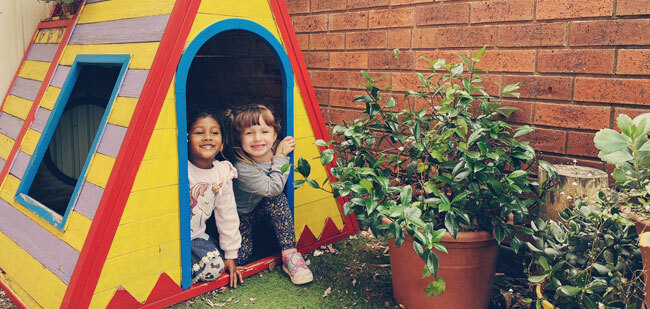
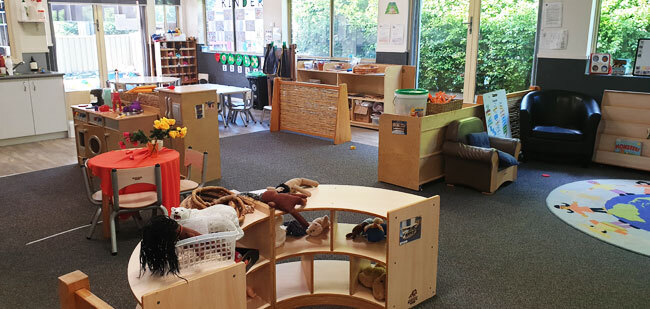
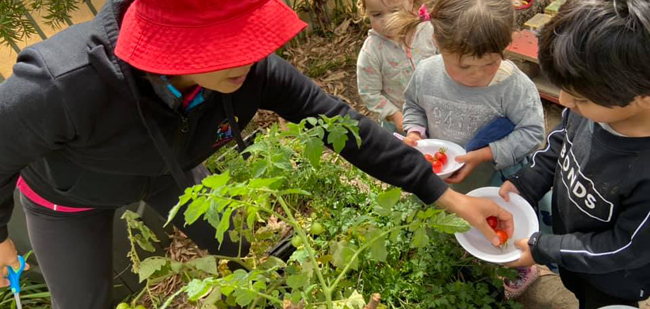
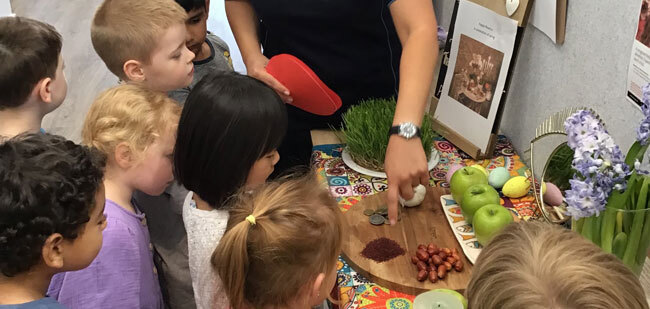
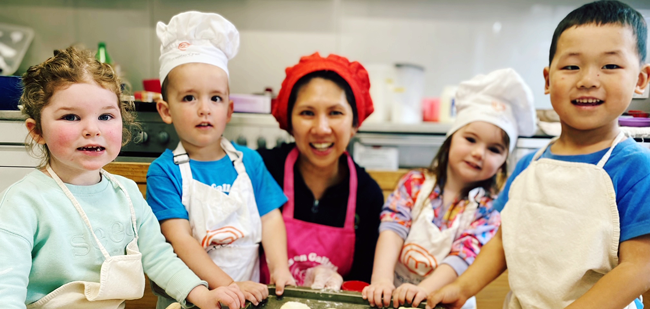
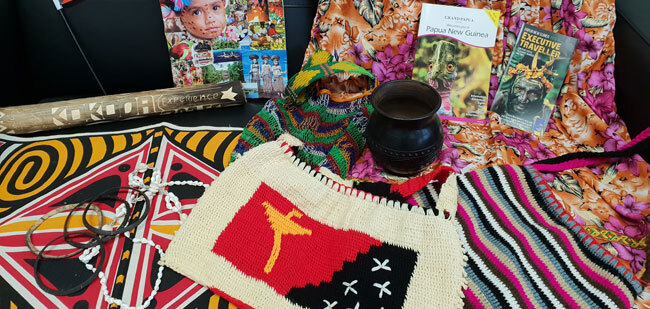
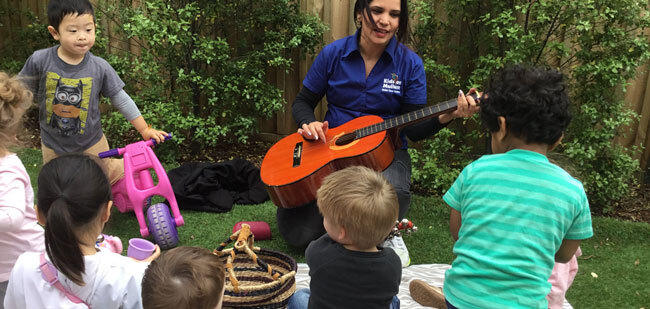
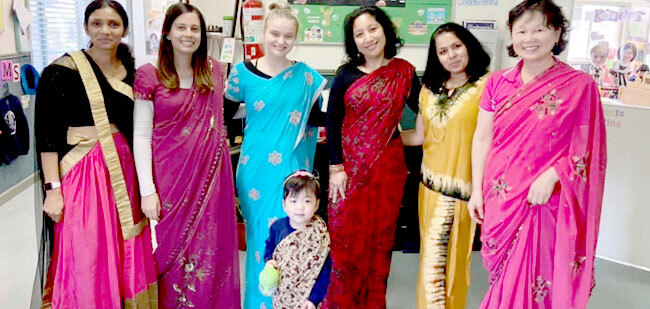
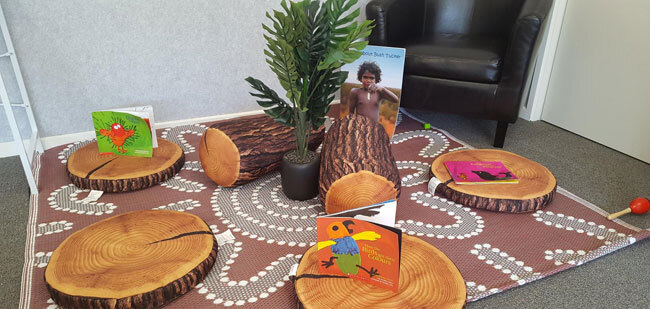
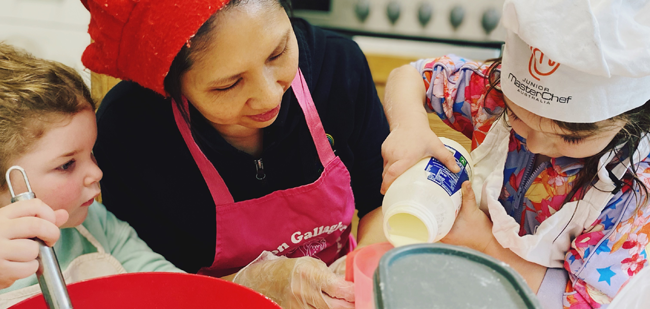
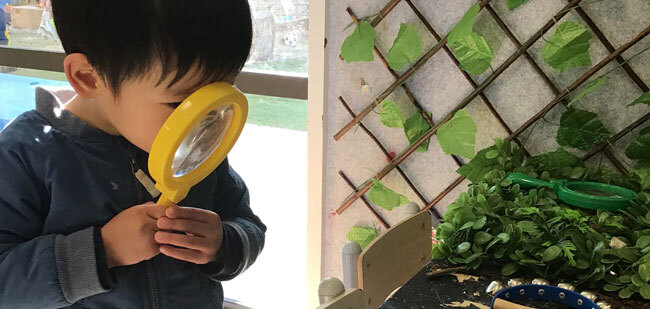
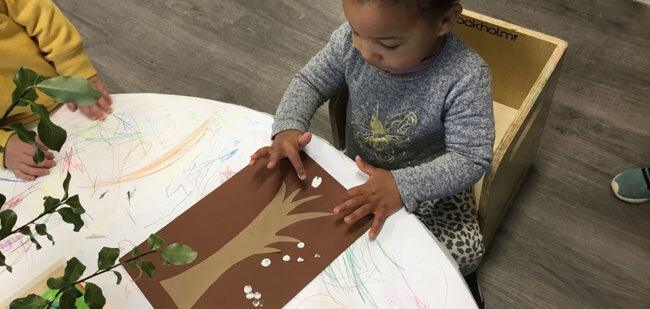
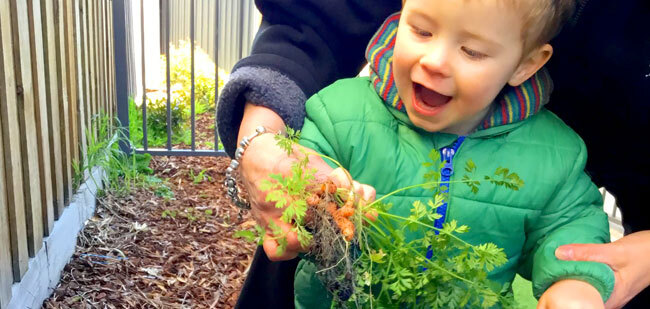
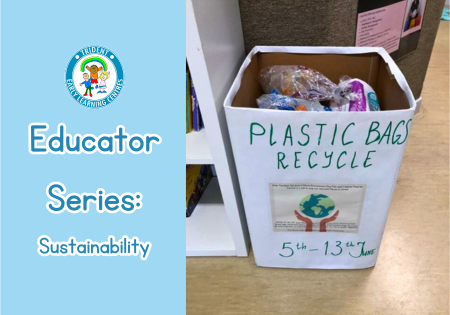
 info@tridentearlylearning.com.au
info@tridentearlylearning.com.au